My eastern exodus from Budapest was not all that dissimilar to departing Bratislava, a few weeks prior, albeit on a grander, busier scale; the charming backstreets of the old town fell away to the city’s perimeter transport hubs, which soon gave way to clusters of commuting urban centres, complete with brightly coloured communist-era blocks lent new life by the parks, greenery, and the odd hypermarket or depot that now surrounded them. But soon, all this lay behind me, as the soil and tracks of the countryside were underfoot once again.

In the late afternoon sun, I drew up in the village of Ecser. I was still in the County of Pest – though not far from its periphery – which surrounds Budapest and where I had been in Szentendre, northwest of the capital. Back in Bratislava, I had befriended a barista named David, and he had put me in touch with a handful of his Hungarian friends who lived along my route. Over the next week or so, this single contact proved invaluable, speeding me along with friendly faces at many a juncture.
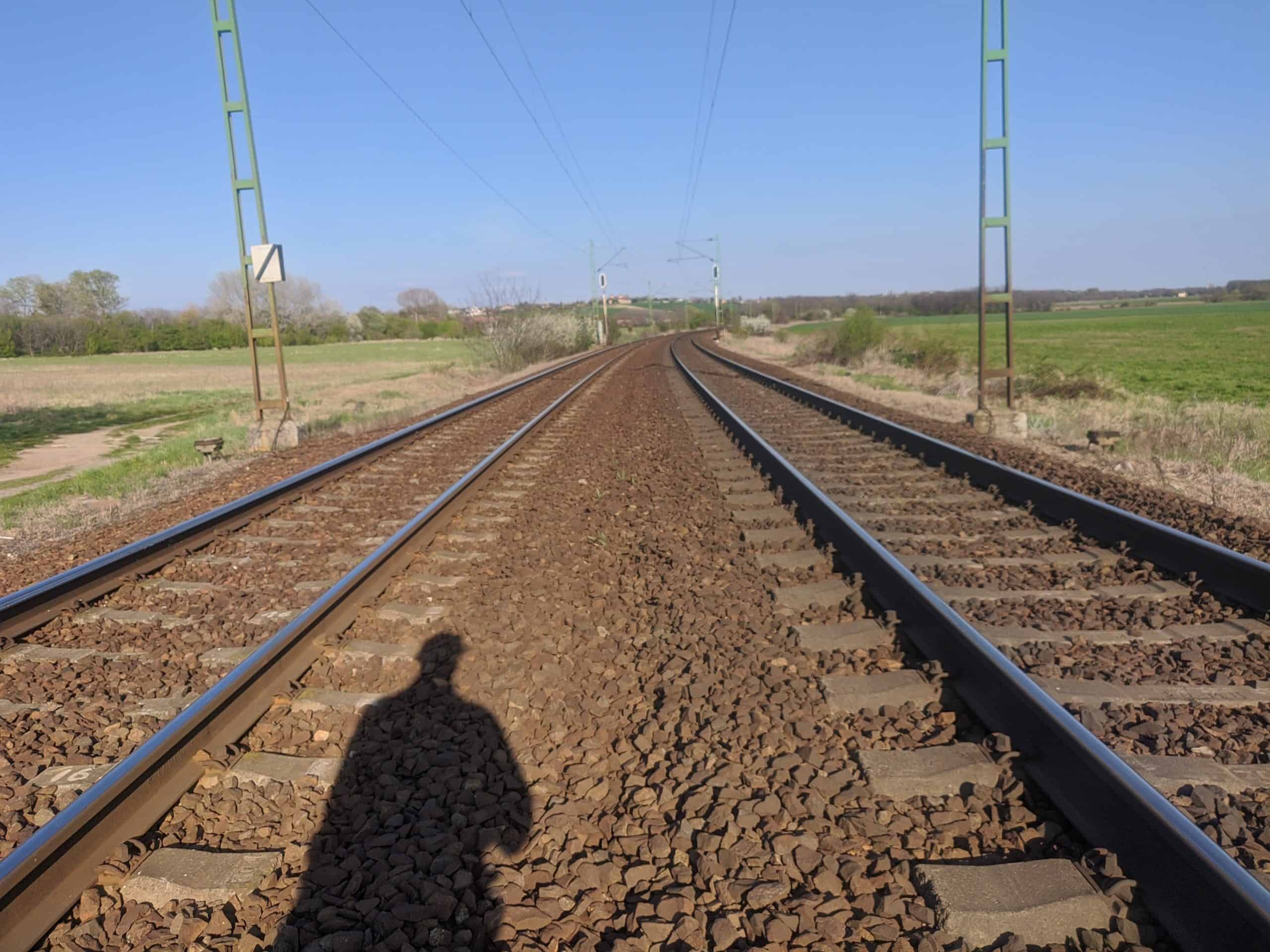
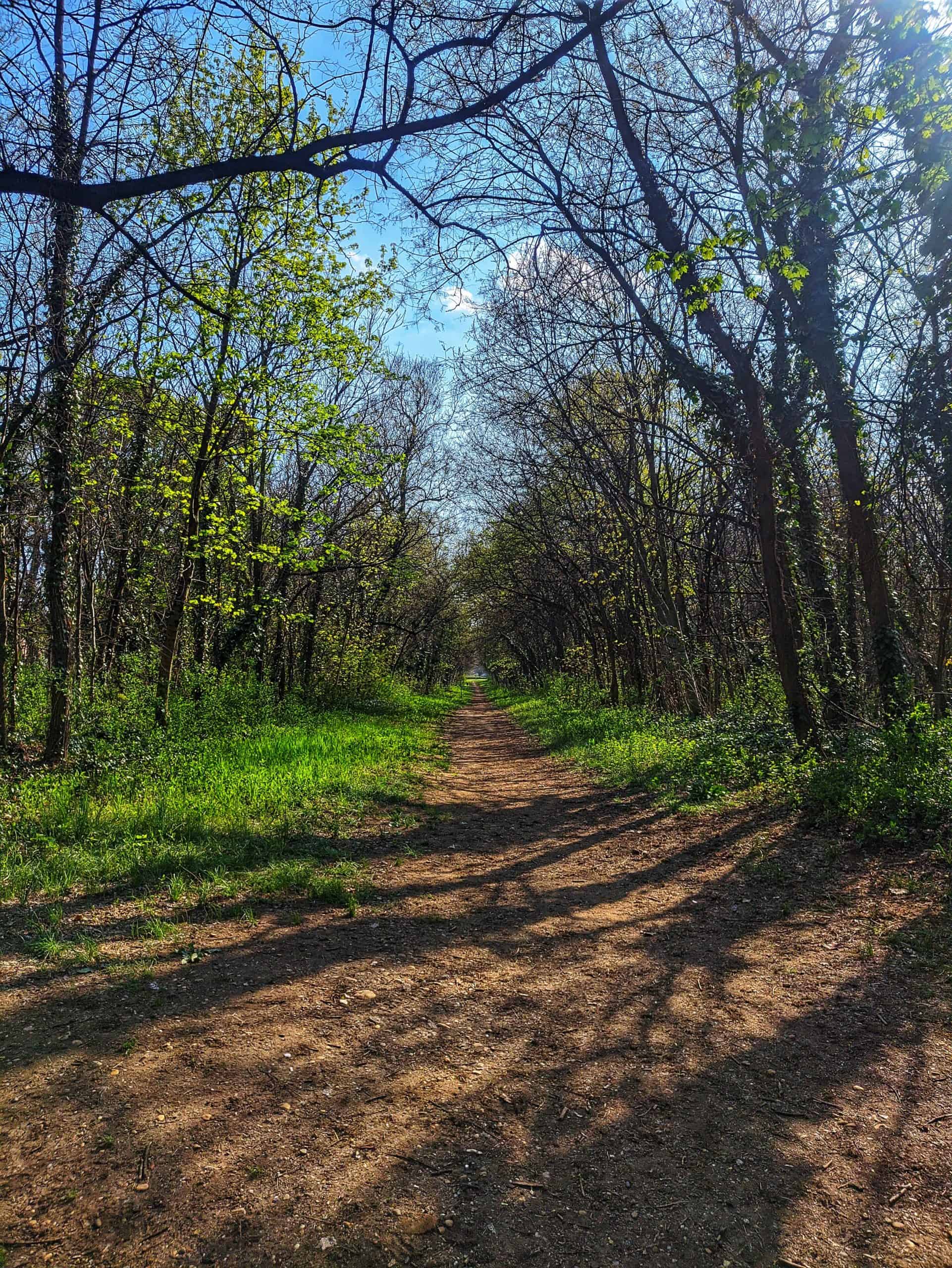
Barista David’s friend, another David, met me outside his house and walked with me down the street to a different building, which he soon explained he also owned; I was welcome to kip there for the night. This bungalow had two apartments: David’s spare, and his neighbours’. As we entered the front porch, a squat and muscled bulldog came bounding down the grass, his bulk and power propelling him at great – and momentarily worrying – speed. To the amusement – and I think surprise – of the neighbours, he started happily jumping up around me wanting to play: Samu and I were suddenly best of friends. Despite his best efforts to follow me into the small flat I’d been put up in, Samu had to remain outside in the front yard, where I watched through a window as he gradually dragged himself away from the door, forgot all about my disappearance, and started chasing spectres across the weeds.
The town was minute and quiet, the result of an elderly population and migration into the city a few miles away. While I waited for my pizza from a place just opposite the house in which I was billeted – what I made out to be the only food vendor in the near vicinity – I walked around town and, unsuccessfully, tried to enter the only real building of note, the mid-18th century Catholic church. Samu greeted me fervently upon my return, not long later.
A race across the Steppe
The next leg of the trip involved an additional challenge: I had just seven days to cover the 160 miles (ca. 260 km) from Budapest to the Romanian border. The reason for my haste was bureaucracy induced; though I had initially supposed that I would have to overstay my 90 days permitted in Schengen by my now non-EU passport, whilst in Budapest, I realised that it was feasible to make it across the border into Romania and out of the Schengen zone just in time.
The following morning was hastened in by my first rooster-induced rousing since the small hamlet of Brunn, just into Upper Austria. I had failed, the night before, to spot the small chicken coop at the back of the house.
It was a dreich and dreary day as I trudged out of Ecser through the rain and into the fields and forests of the steppe: today marked my first full day’s walking across the Great Hungarian Plain. As if to make plainly obvious this landmark arrival into new terrain and habitat, as I traversed through rows of corn just before midday, two brown-spotted does leapt out in front of me from the bushes and chased each other across the field, playing and prancing in the drizzle, disappearing over the gentle rise of the field. But the land was getting flatter. When I later emerged from a forest, I found myself passing along a field filled with the famous Hungarian Grey Steppe cattle, many sporting the beginnings of their iconic, curved lyre-shaped horns. For a moment, they all paused their grazing to stare at me with puzzled, cautious expressions: some wandered over to investigate the backpacked fellow standing in their sodden field, others stayed well clear, feigning indifference.

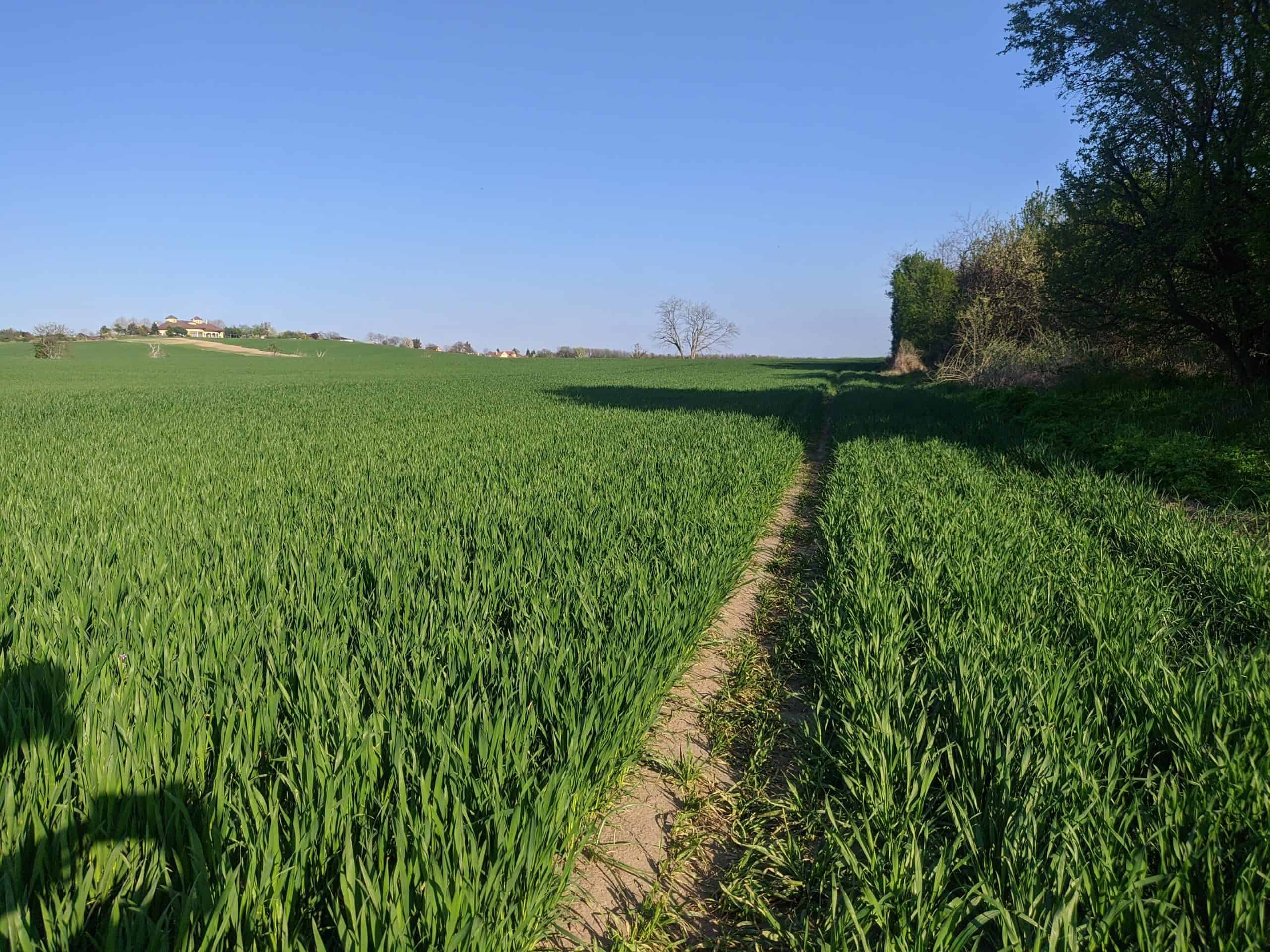
A truly thrilling aside on provisioning
I arrived in Monor a bit before 2pm. A supermarket lunch and provision stock up in town at Spar cost me just shy of £4: it was getting cheaper. And I rewarded myself with a coffee in town.
Now I’d hazard that not many people spend their time reading google reviews of supermarkets, but of late, I have. If my experience in this region in Hungary in particular has taught me anything, it is that Hungarians like their self-checkouts — for the Hungarian online supermarket reviewer, it’s a dealbreaker. The Germanic lifestyle been far keener on their “ladies” manning the manual checkouts, and ironically it wasn’t until Slovakia (and briefly Czechia) that the automated alternative had begun to appear. Though I’d left many of the German (and Austrian) supermarkets behind me, Penny, Lidl, Aldi, and Spar persisted. Tesco’s – a taste of home – had entered the fray as a major player, and many mini Hungarian “super”markets, were also starting to take up their positions in the challenge that was feeding a hungry walker. For much of the trip, preparations for Sundays had taken on an important role; I’d learnt very early on that, across Western Europe, the day of rest closed almost everything in town and Saturday shopping was required to circumvent hunger. However, by the time I’d reached Hungary, this was less of a concern: behind the Iron Curtain, Hungarians cared much more that I use one of their red plastic baskets provided when shopping, than whether they should really be closed on Sundays.
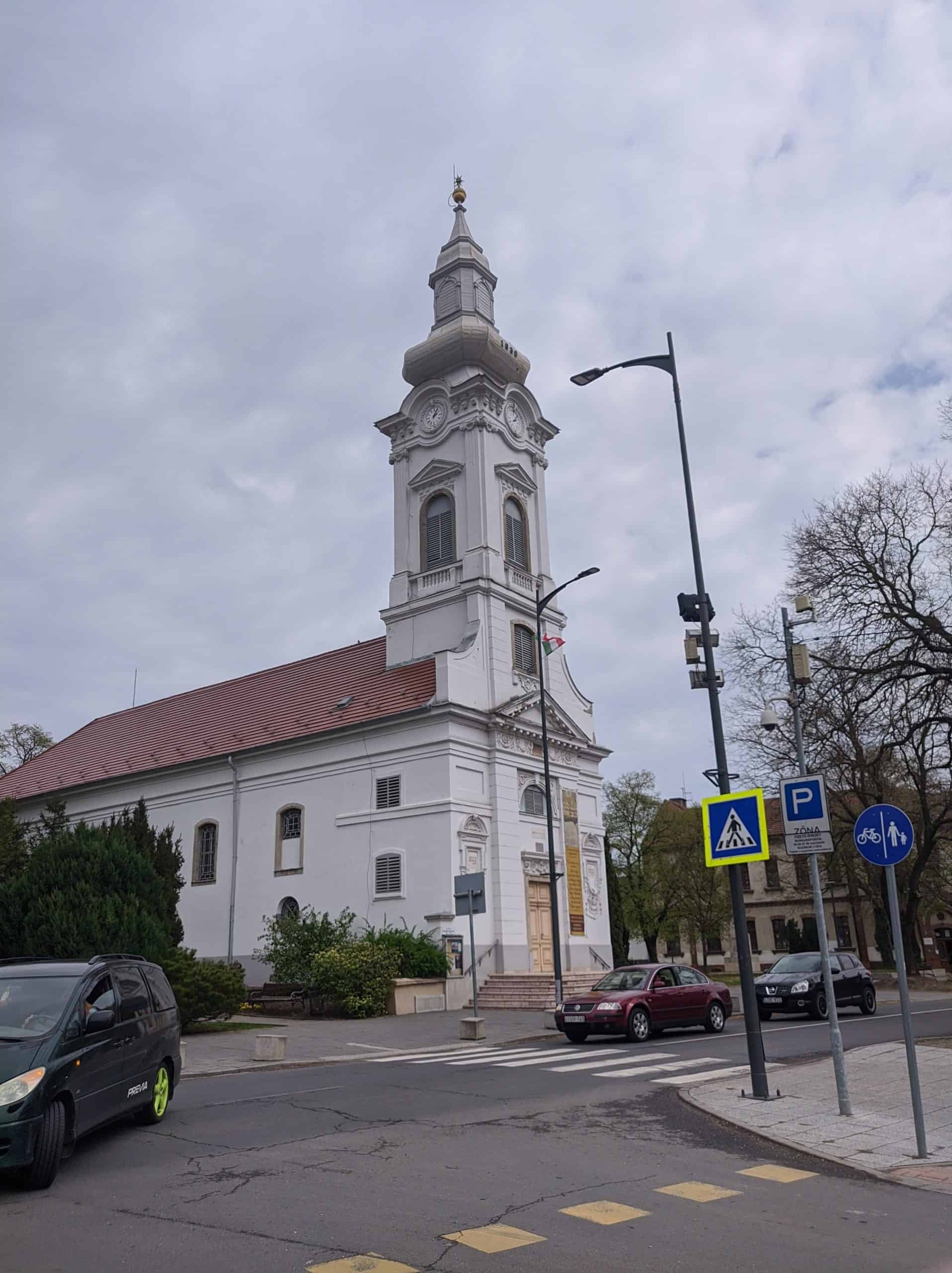
Meet the Mafia day
Back in Budapest, I had got talking to a Parisian hiker about my route and navigation strategies thus far, and before long, I had amassed a host of new advice, techniques, and applications that “Tomas” thought might help streamline my days, especially in scenic areas. The tips yielded much success, especially the hiking trail apps he had suggested, and much of my path finding that day – and across the Plain – took me seamlessly through forests, shrubbery, and fields, and down charming, nonexistent lanes that I had carved out of the undergrowth.
Upsettingly, even in remote woodland, human rubbish was not hard to spot. Finding large piles of plastics and bottles in remote areas of forest was not uncommon and left a sour stain on the nature and the days. (Heading into the heart of Eastern Europe, this would become an all-too-common facet of the landscape, and one which I quickly learnt to elide from my recollections.)
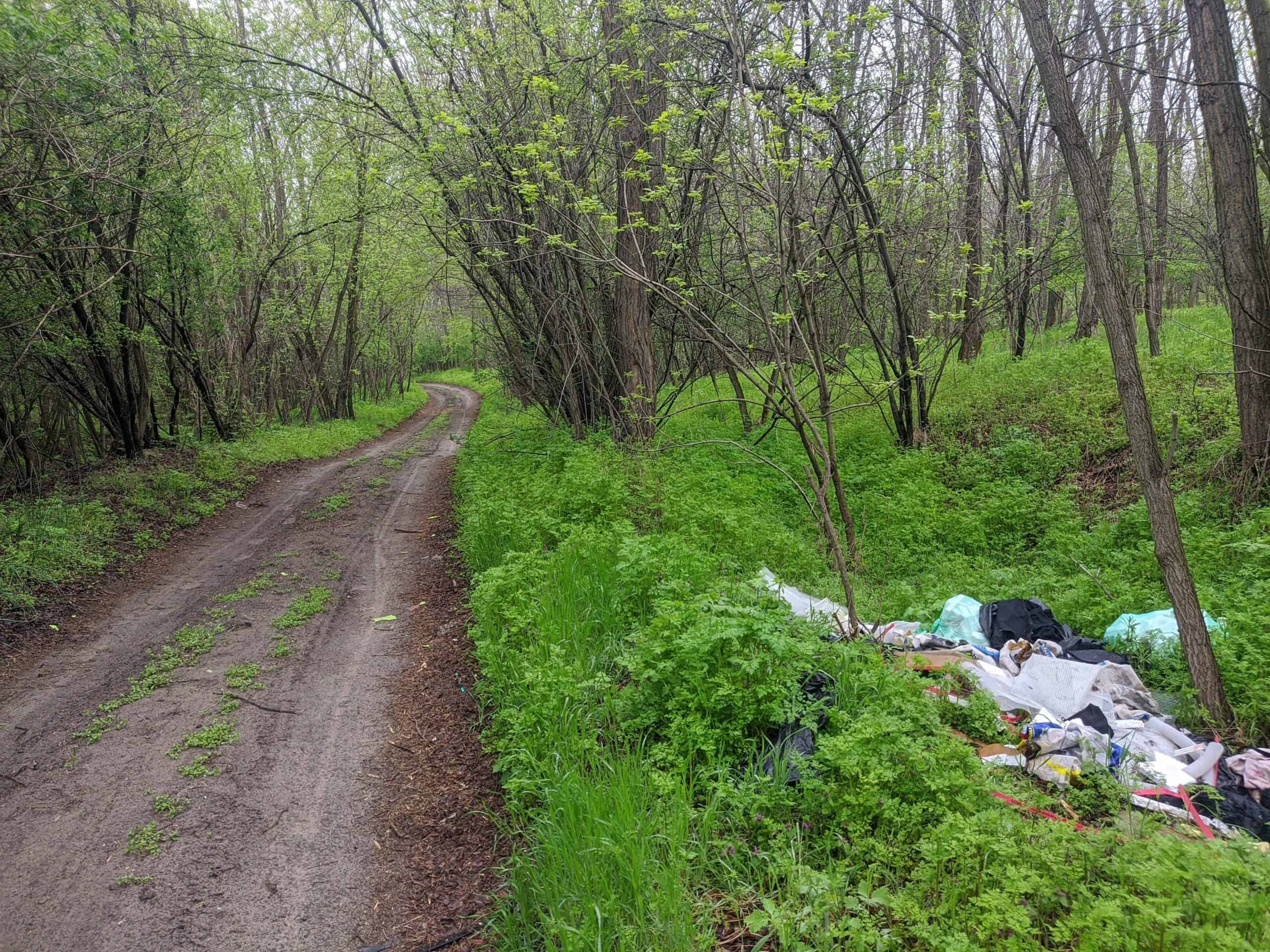
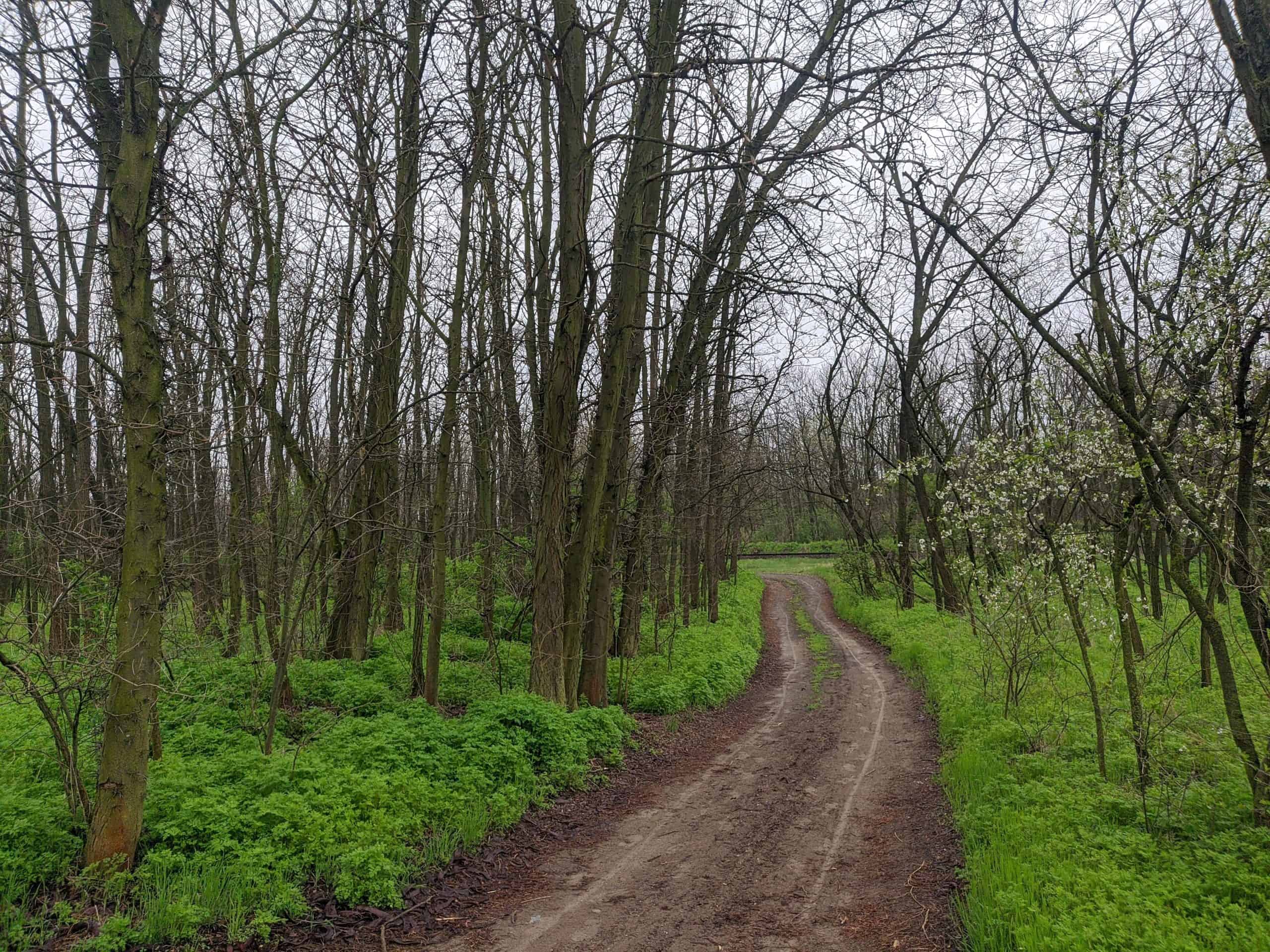
That night I stayed in the town of Pilis, found about 10 miles due north of Pusztavacs, a small village in the middle of nowhere only of note owing to its reputation as the geographical centre of Hungary. An elderly woman, Erika, provided me with a room for the night; the lodging had been obscurely listed online as a (very) cheap hostel, but in reality I had a double room in the attic of her house. Chufi the cat was less than pleased by my arrival. Having popped out to get some food in order to use the hostel facilities to cook, when I left the store, the clouds had turned an ominous grey and the light had attenuated. I shuffled back to the house as the rain began to fall.
Feasting over my bowl of pesto-pasta and some scrambled eggs, I sat at the table for a couple of hours in the communal kitchen area downstairs by the door to the house. The other couple of rooms in the house, aside from mine and Erika’s, had been empty for the duration. However, just before 10pm, four Hungarian men arrived; initially they seemed friendly and started setting down their bags and emptying their pockets out onto the kitchen table next to me. Feeling slightly underdressed in my pyjamas, I began to tidy up. As I headed over to the sink, I heard a clicking sound and looked over: one of the men was reloading a pistol. Dazed, I started doing the dishes in the middle of the room as the men watched their friend disassemble and then reassemble the hand gun. Then another man emerged from the hallway carrying the scope of a sniper rifle. For a minute or two, I finished cleaning up, as I considered my options. Then, in the heat of the moment, I decided to ask them if they were going hunting, deliberately trying to sound as foreign, naïve, and harmless as possible. One man answered for all: “Not really. Not that kind of hunting”. An eery statement, in direct contrast to his cheery disposition, the implications of which, I hoped, were only due to a lack of familiarity with English. Quickly packing up my gear – book, phone, earphones, etc. – I started to head out. “Goodnight”, I called out in a high-pitched, but calm voice. They called back cheerfully. As I rounded the corner to head up to my attic redoubt, one man retrieved a rifle from his bag. I repaired to bed, and asked no more questions.
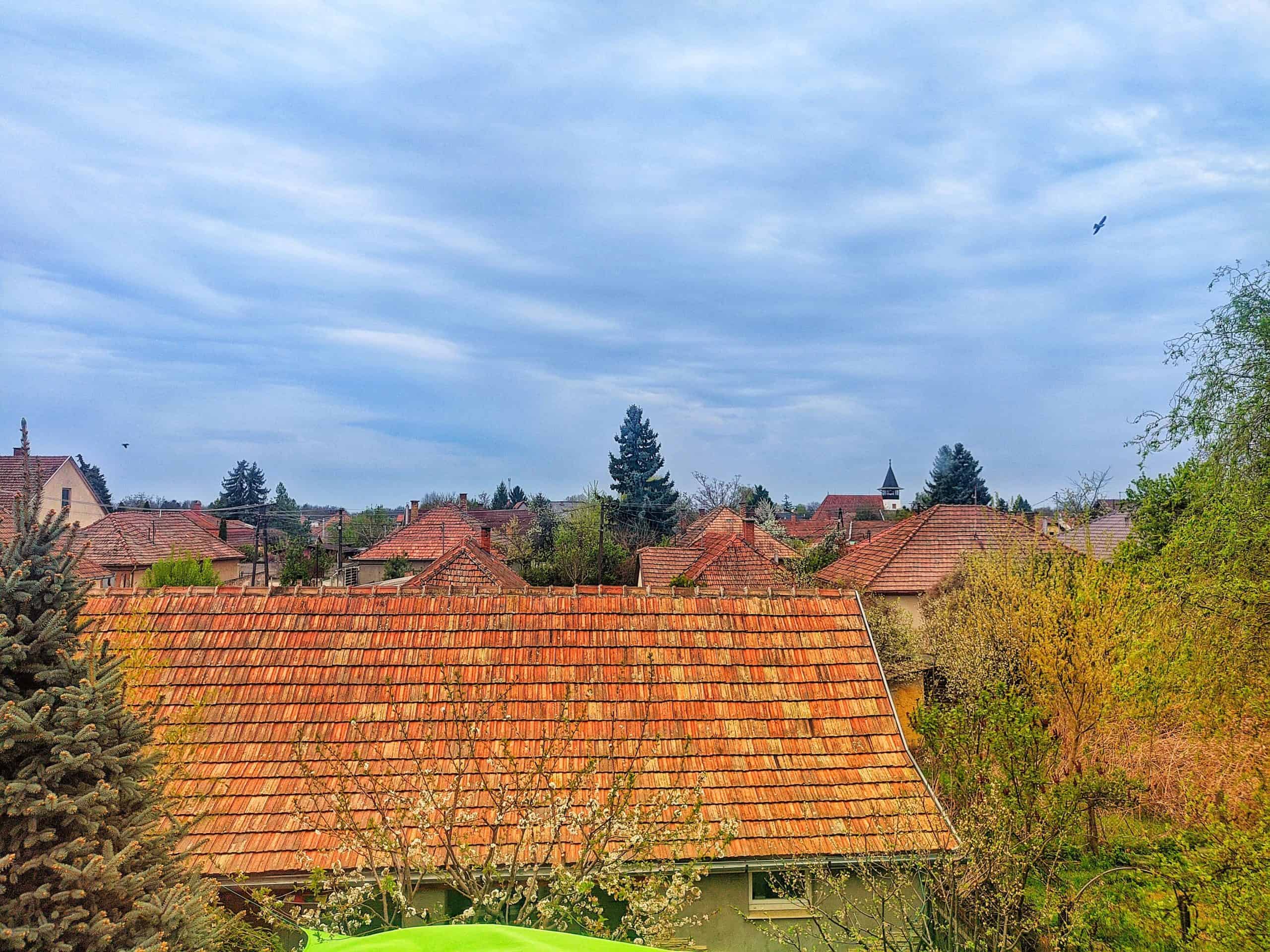
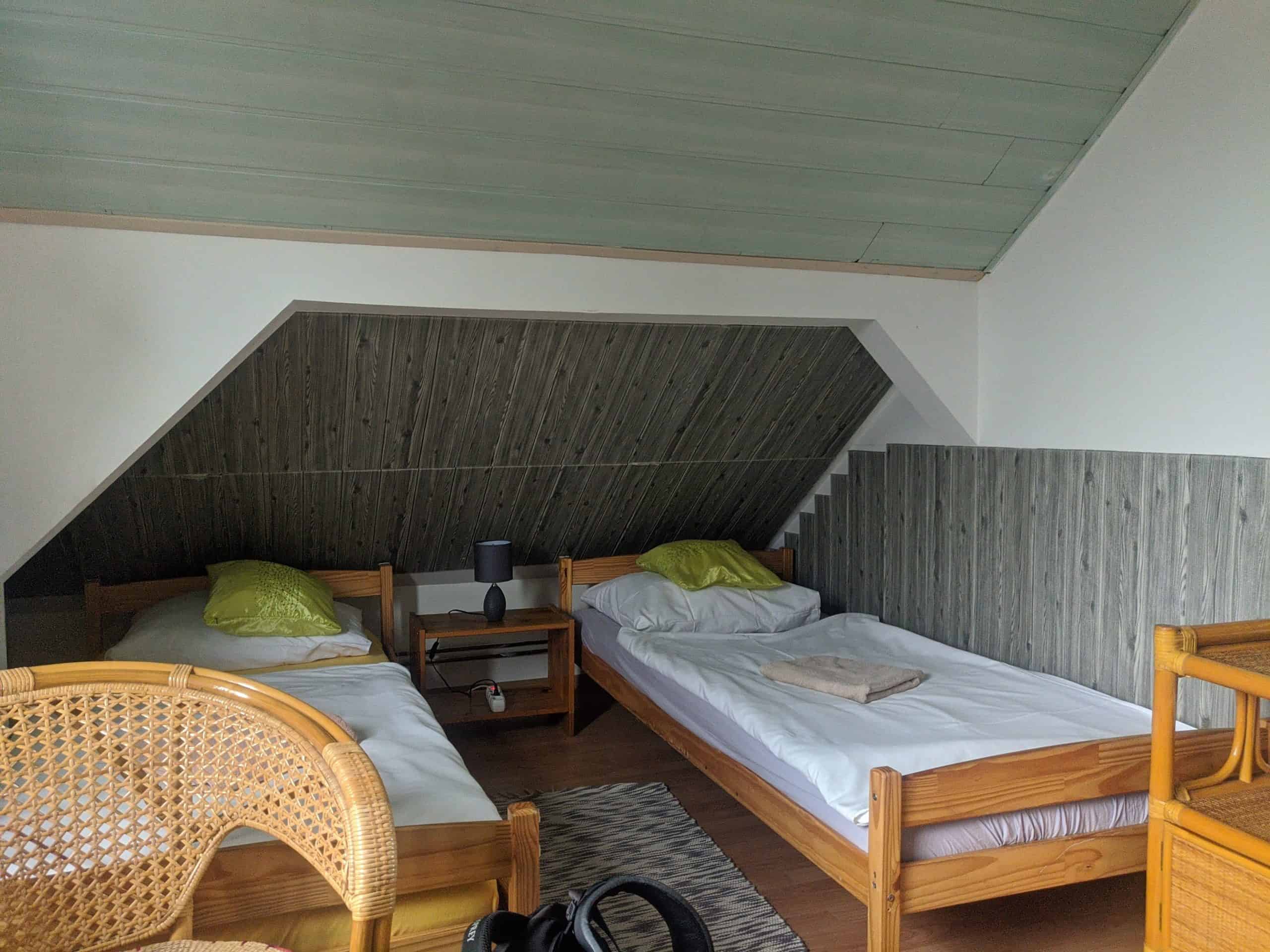
Cegléd
Late in the day, as I made steady progress across the steppe towards Cegléd, I truly began to process the fact that I was over the halfway stage — I only had two odd months left until my arrival in Istanbul. And I didn’t quite know how to feel. I was so enjoying my time solo travelling, I didn’t want it to end; that said, it was still a long way off.
Walking out of town and into a forest, a path lined with beeches followed parallel to dual train tracks which ran through the forest. I had followed this line of tracks (or at least caught sight of them) on and off since leaving Budapest via the suburb town of Ecser. The tracks were quiet, with something melancholic about them as they carved through the woods and meadows. I arrived in Albertirsa around midday and found myself yet another supermarket-pastry brunch. I pressed on through the streets of town and back into the forest paths.
For much of the afternoon, the woodland through which I walked would often open into the sprawling fields of the steppe; I’d then wander down the dirt lanes of a small village for a few minutes, before returning to the wooded paths or plains. My new navigation maps were doing their job and keeping me away from A roads and motorways: keeping me firmly ensconced in the landscape. It wasn’t uncommon during this leg that I found myself meandering down nonexistent, though viable, paths through the shrubbery. I suspected the new navigation techniques had come at the perfect juncture in my trip; I had seen first hand in Slovakia just how quickly one can end up stuck following busy, vehicular roads.
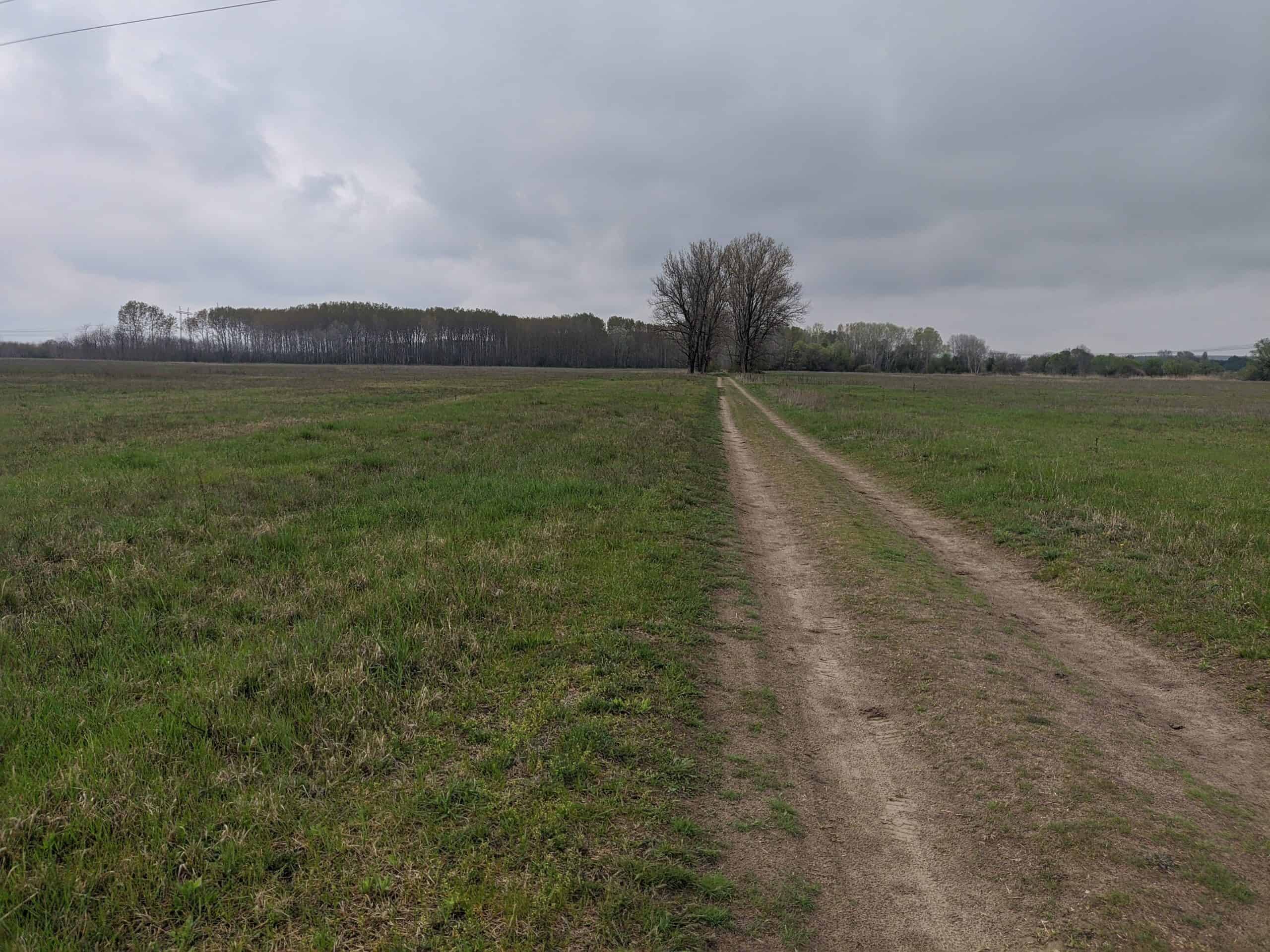
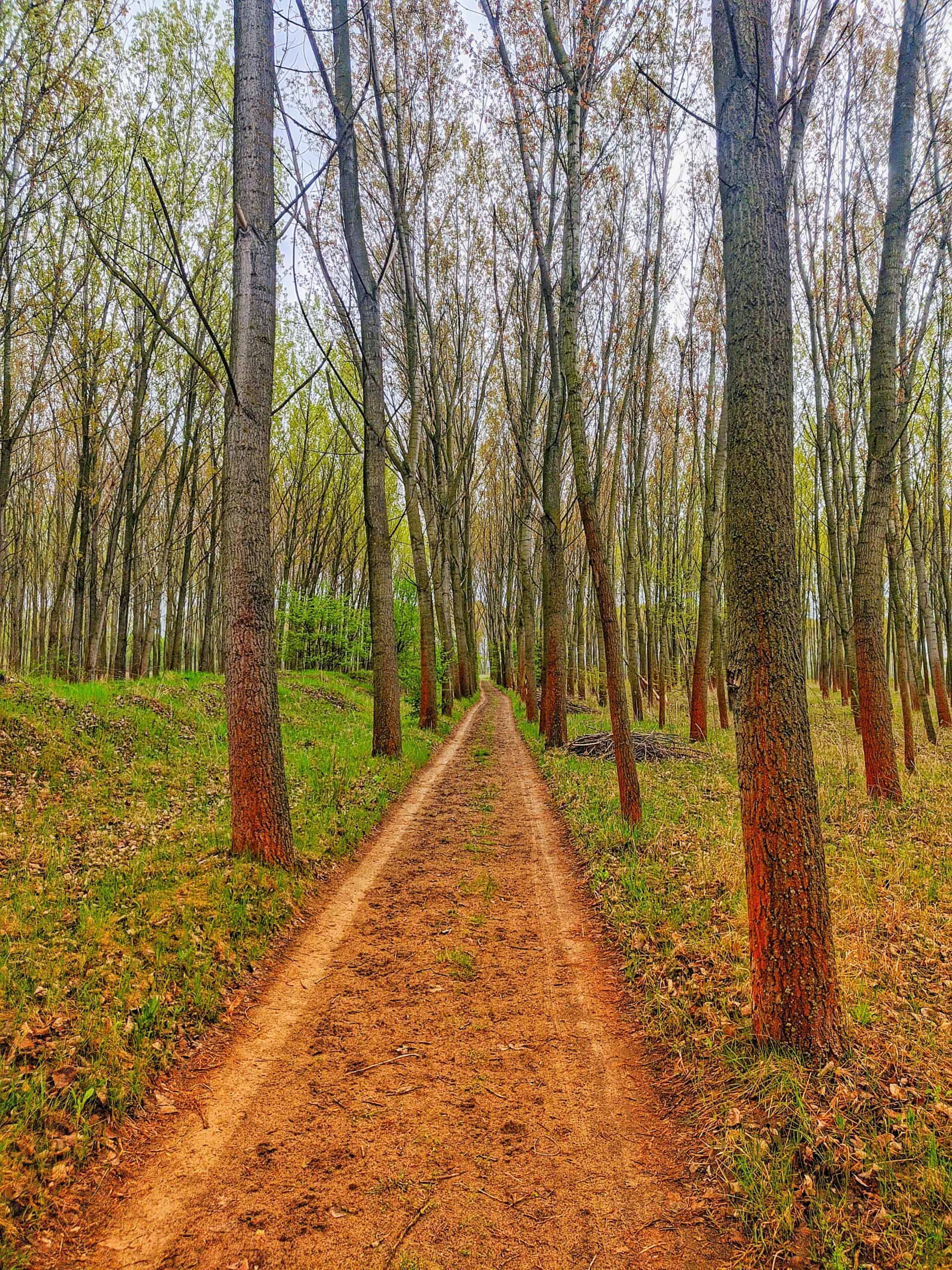
When I reached the town of Cegléd, where I was due to stay, I stopped for a short while in a café. There I eventually managed to get in touch with another of David (the Bratislavan barista)’s friends, Norbert. I headed over to the address he sent me, in the southern outskirts of town, where I found myself standing in front of a building clad with pictures of musical instruments. Ringing the doorbell, Norbert emerged and beckoned me inside. Through curt and direct English discussion, he showed me around what was his music studio. He had made up a sofa bed for me in the lobby by the door. Showed me where the bathroom and shower and kitchenette were, and pointed out his production room too. He asked me if I wanted to go get food and I said I had planned to go into town to pick up some supplies; soon we were both in the car heading out to the supermarket down the road. Only belatedly, after Norbert had entered the store with me, did I realise that he wasn’t planning on buying anything himself and that he was there to help me. My by-now-extensive experiences in European and also now Hungarian supermarkets unknown to Norbert, he toured me around the store as we collected supplies for a sandwich supper including pastries and yoghurt for breakfast: he translated as we went. He was a lovely man, and I so appreciated just how accommodating he was to me, a random stranger who had practically turned up on the doorstep of his office. We headed back to the studio (I was unclear if it was mainly a music school or production studio).
Whilst attempting to converse during the car ride, I had learned that Norbert’s main craft was his drumstick production business. When we got back, he showed me around his workshop in a warehouse out the back of the studio. In the first room of the shop, there were three great machines which aided the craftsman with turning the wood, filing, and polishing. There were piles of two varieties of small wooden blocks waiting to be whittled into shape: the classic American hickory, and the Hungarian hornbeam. In the next room, Norbert housed his branding machine, and also his latest stock of a vast variety of different drumstick styles. His kindness went further: he reached up to a middle-shelf on the wall and revealed a deep blue set of sticks with his brand name Artbeat Drumsticks painted on, which, smiling, he proffered in my direction. “A gift!”, he proclaimed: the first of the trip — a real memento.
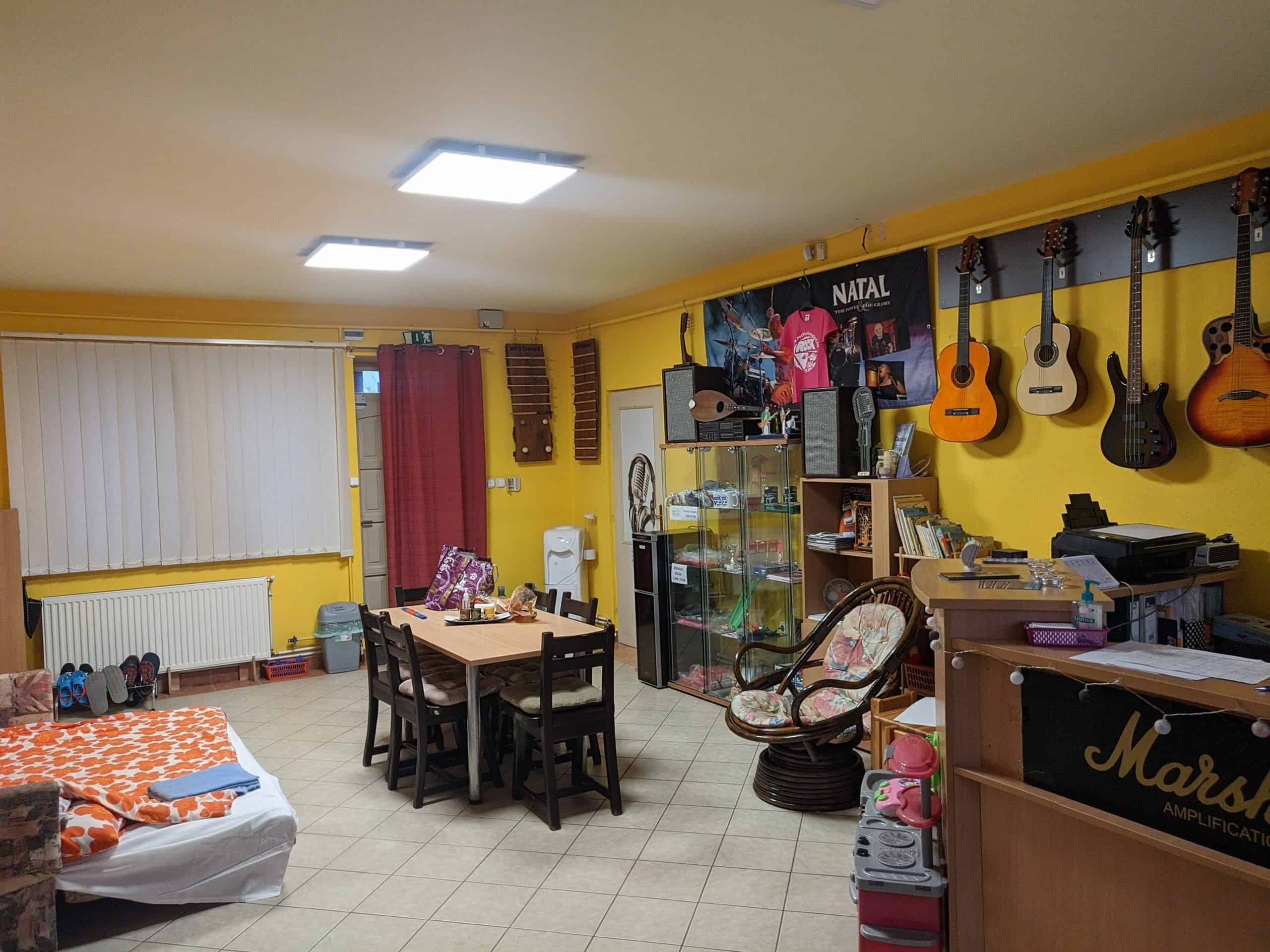
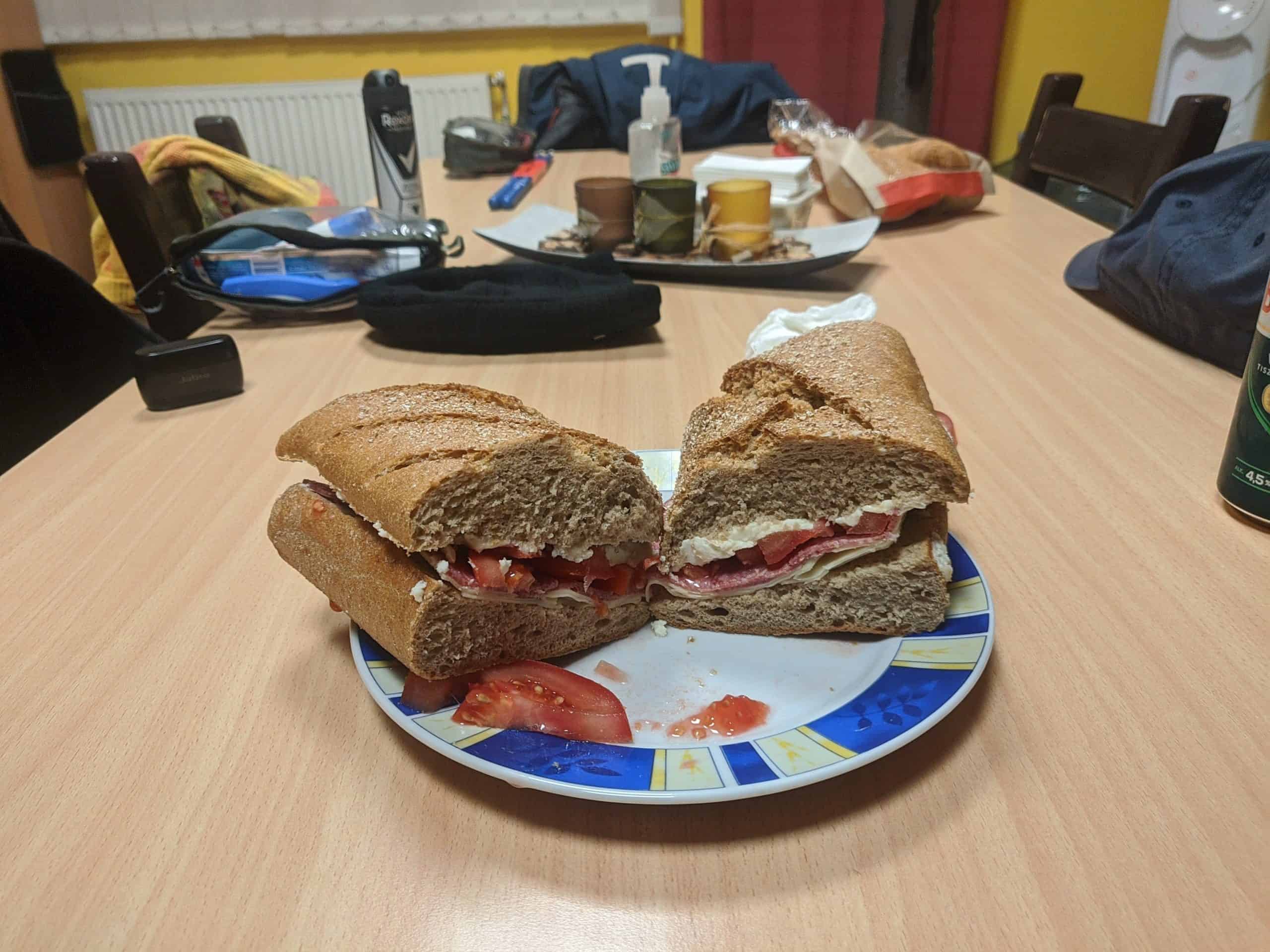
We headed back into the main building and he checked that I had everything I needed for the night, saying he would be back by 8:30am the next morning. After encouraging me to use the piano room – he had asked which instruments I play – and shaking my hand multiple times within the space of a minute, he headed off and left me to my supplies and devices.
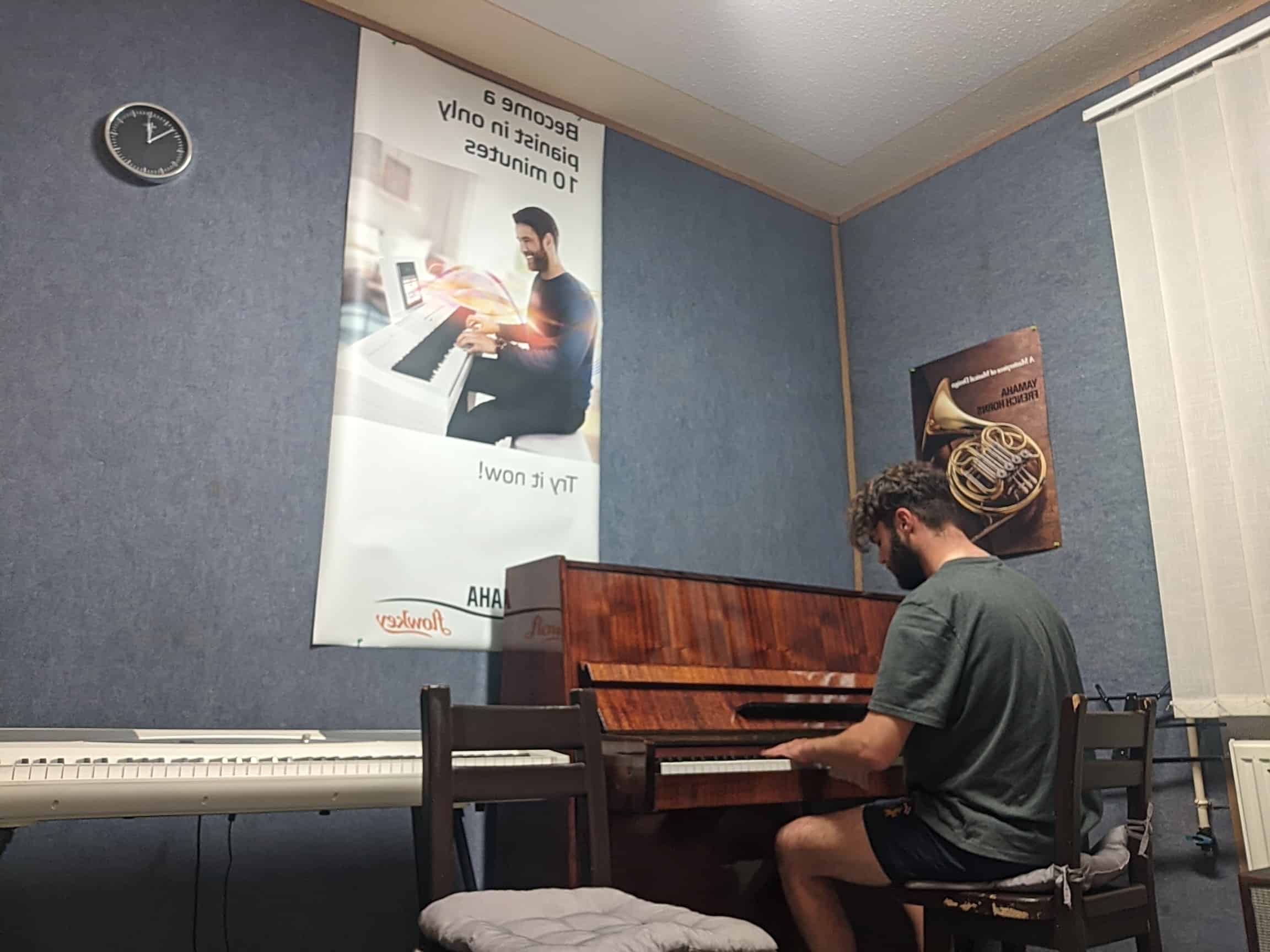
To Szolnok
I awoke relatively early in the foyer of the music studio, aware of my need to “up and out” before the arrival of clients. Norbert returned soon after my waking and, after another firm handshake, I set off. It was a noticeably brighter morning than the two preceding it, and I walked back through town, popping into a couple of churches as the parishioners prepared for Sunday services. I headed northeast through the centre of Cegléd, passing through a good number of squares, the existence of which stood out given the lack of squares in the other towns along the Plain. Out of the city, I passed through the vicinity of Abony, an area consisting of manmade lakes with waterside shacks and inns dotted around, no doubt a weekend destination for locals in the summer months.

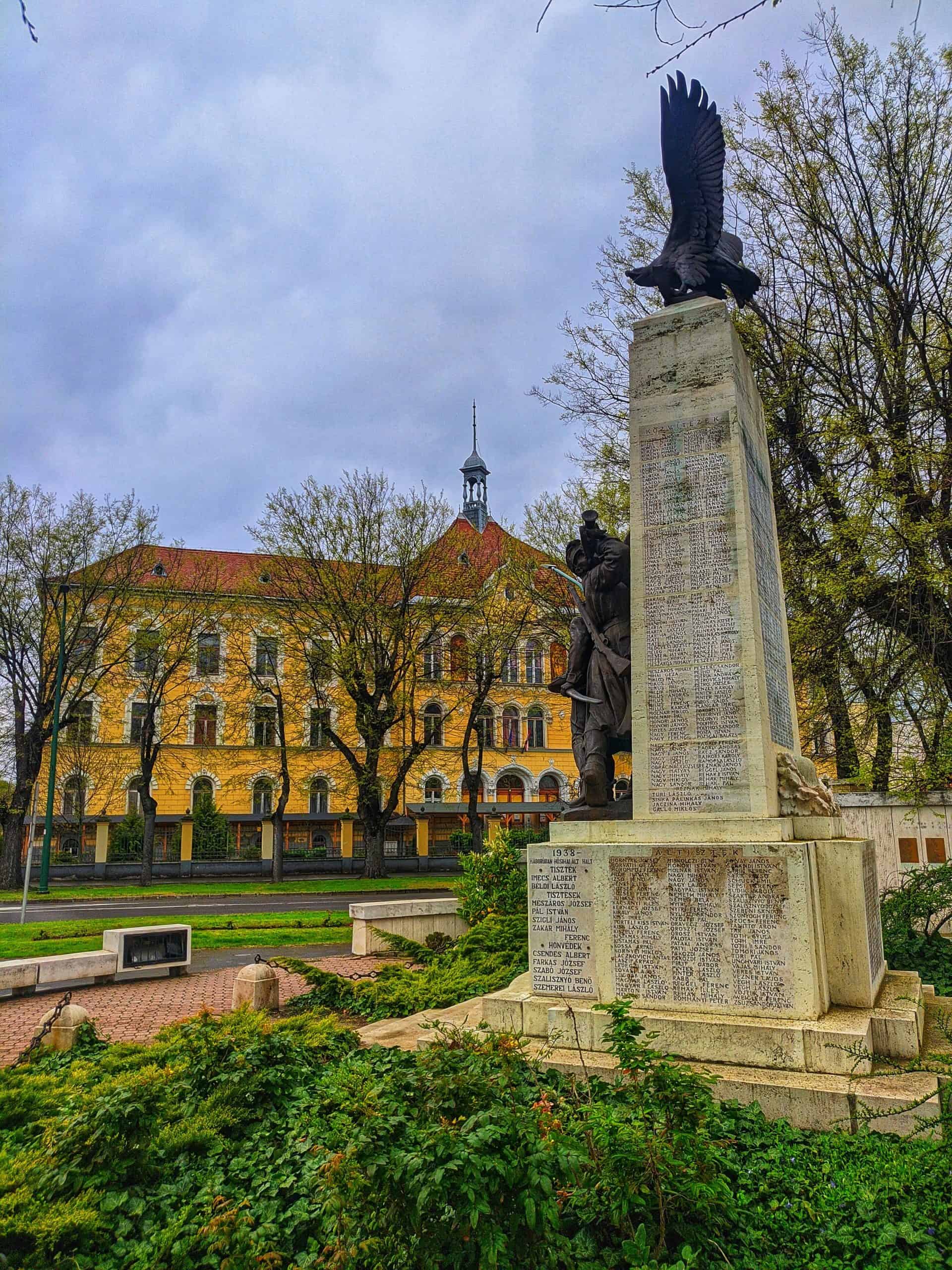
By mid-afternoon, I had arrived in the town of Szolnok, and, in doing so, exited the County of Pest and reached Jász-Nagykun-Szolnok County — catchy, I know. Located on the banks of the river Tisza and the mouth of the river Zagyva, Szolnok sits right in the heart of the Great Plain. Across the centuries, the town served as a prominent crossroads and a final obstacle to aspirational invaders en route to Budapest: it holds the unfortunate honour of having being sacked by both the Mongols and the Turks in its day.
A while later, when finding food (it was a Sunday!) I asked the waiter, “Tudsz Angolul?”. Do you speak English? He replied “Nem. Deutsch?” When I replied in the affirmative, his excitement was evident and we slipped into German. This was not the first time I had found my German useful in Hungary, nor would it be the last; I was often surprised at quite how many young Hungarians preferred to converse in German than in the international English we have come to equate with globalisation and modernisation. It was a pleasant surprise.


After a brief tour of the town’s many churches and a short stroll up and down the riverside, I met up with István, my couchsurfing host for the night. He lives in the centre of town, halfway up a 10-story communist block. There were a few initial teething problems on the communication front: his English was rusty and he explained that he was medically hard of hearing — I would hazard that lip-reading in a second language is hardly the easiest of practices. Despite this, we soon found our way and settled in for the night; having wolfed down takeaway pizzas and finished a film on the TV, I reclined back on the sofa István had made up for me. I was soundly asleep before the credits finished rolling.

So enjoyable!!! I was there with you .. kept your
cool with those 4 rifle and gun bearing men.
And on the flip side, the generous men where
you spent the nights .. proving again how much
we are all alike in our travels around the world.
Yes, I too will be sorry when you reach Istanbul!
Hopefully, a book! Yes!
Thank you, Nelly!
As ever, engaging. You are having fun! Not so many ladies mentioned this time…
I think you are very brave sleeping in strangers homes / studios please be careful
I know you will be sad when you have finished walking but I will be delighted to have you home
Granny
Another fascinating chapter in your great trek across Europe.
Very rewarding keeping these records & photos for your return & reflections when back home.
We are enjoying following you through these blogs. Grandpops 👍😀